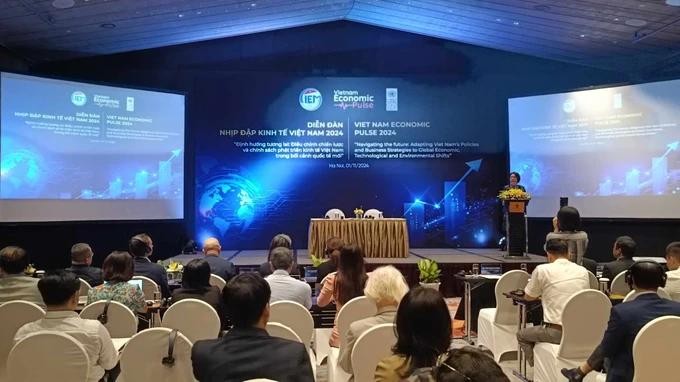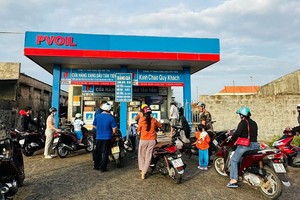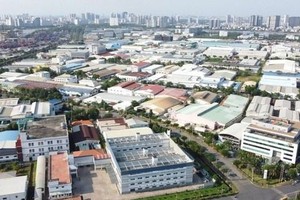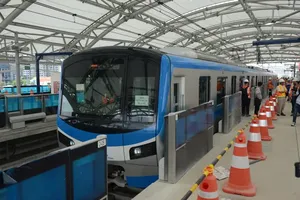
At the forum jointly organized by the Central Institute for Economic Management under the Ministry of Planning and Investment (CIEM-MPI) and the United Nations Development Program (UNDP), participants proposed eliminating business conditions and procedures to ensure a closer alignment with market signals and to reinforce the market's role.
Head Nguyen Huu Tho of the CIEM’s department of economic analysis and forecasting highlighted that Vietnam's economy is on the rebound, achieving growth rates that lead the ASEAN region, much like the pre-Covid-19 time. However, he stressed that the domestic economic sector does not possess the necessary strength to transition more efficiently to the international market. Unfortunately, the key economic areas such as Ho Chi Minh City, Hanoi, Binh Duong, Dong Nai, and Ba Ria - Vung Tau—are still moving at a sluggish pace.
In the case of Ho Chi Minh City, the contribution to the national GDP in 2023 was 2.5 percent less than it was in 2015. Likewise, Ba Ria - Vung Tau's contribution to the national GDP in 2023 was 2.2 percent lower compared to 2015.
Notably, the overall state of the business sector appears to be quite uncertain. The growth in the number of enterprises has fallen short of expectations, and while purchasing power has seen some increase, it remains modest due to the lack of significant improvements in workers' income.
The representative from CIEM's research team proposed issuing additional legal guidance documents as a short-term solution. The expert highlighted the need to expedite the issuance of these documents, emphasizing the removal of regulatory hurdles and the alignment of regulations with market signals.
In the medium term, Dr. Nguyen Huu Tho remarked that the emphasis should be placed on enhancing the quality of legal documents and expediting the process, as the average duration of a law's effectiveness is approximately nine years, whereas the current law-making procedure takes between two to three years.
Infrastructure development emerged as a critical topic during the workshop discussions. Participants emphasized the necessity of completing transport projects, including the North-South high-speed railway and expressways. There’s a collective drive to ensure that by 2025, the country achieve a target of 3,000 km, enhancing connectivity both regionally and across regions.
Furthermore, according to the recommendations of experts, in addition to above-mentioned infrastructure development, about 40 percent of applications need to be handled online – that's a goal that the Southeast Asian country needs to orient toward.
Production support is recognized as critically important, yet it must be strategically directed towards specific groups. This includes newly established enterprises and households, as well as those resuming operations throughout the year. Additionally, it should prioritize businesses that are vulnerable to natural disasters, those located in economically disadvantaged regions, areas designated for investment incentives, or those engaged in the production of goods that substitute imports.
























